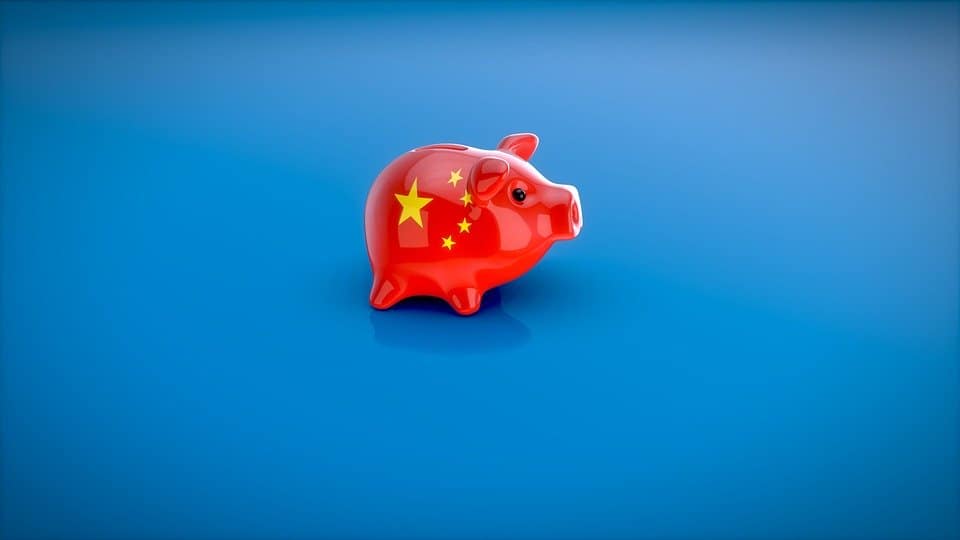China’s big state-owned banks have issued a collective statement committing to the provision of financial support for the development of the real economy.
On 16 October, Agricultural Bank of China (ABC), Bank of China (BOC), Bank of Communications (BOCOM), China Construction Bank (CCB) and Industrial and Commercial Bank of China (ICBC) issued a joint statement committing to “strengthening the intensity of support for the real economy.”
The joint statement by five of the big six state-owned banks arrived on the same day as launch of the 20th National Congress of the Chinese Communist Party (CCP) – the most important event on China’s political calendar.
The joint statement follows the release of a similar announcement by Postal Savings Bank of China (PSBC) on 10 October, meaning that all six of the big state-owned banks have committed to lending policies in support of China’s real economy.
BOC highlighted the formulation of an “action plan” to support the real economy, comprised of 42 support measures covering 8 areas.
It also touted rapid growth in lending, with customer loans increasing by 1.69 trillion yuan during the first three quarters of 2022 to reach 17.41 trillion yuan, for a rise of 10.78%.
As of the end of the third quarter BOC’s tech finance balance was over 1 trillion yuan, for an increase of more than 16% compared to the start of the year, while green loans had increased by around 36%, financial inclusion loans 35% and private enterprise loans 18%. Domestic manufacturing sector loans saw an increase of around 18%.
ABC highlighted its focus on strengthening services for China’s rural village revitalisation strategy, which had seen the provision of over 900 billion yuan in county level loans, as well as increased support for the manufacturing sector, infrastructure development, tech ventures, private enterprises and financial inclusion for micro-businesses. ABC has also endeavoured to create a “multi-tier green financial services system.”
ICBC said that it had provided over 5 trillion yuan in new financing to China’s real economy during the first three quarters of the year, as part of efforts to support financial inclusion and the Chinese central government’s economic stabilisation measures.
As of the end of September, ICBC’s domestic renminbi loan balance had seen a net increase of 2.2 trillion yuan compared to the end of last year, 457.3 billion yuan ahead of the figure for the same period in 2021 and first amongst China’s big state-owned lenders.
ICBC’s manufacturing loan balance increased by over 810 billion yuan compared to the end of last year, for a 37.5% rise, while green loans have increased by around 950 billion yuan, for an increase of 34.0%.
The strategic new industry loan balance exceeded 1.6 trillion yuan, for an increase of 59.2%, and the financial inclusion loan balance rose by more than 410 billion yuan, for an increase of 37.6%.
CCB said that as of the end of September its outstanding renminbi loans approached 20 trillion yuan, for an increase of 2.1 trillion yuan compared to the end of last year, nearly 520 billion yuan ahead of the figure for the same period in 2021.
Financial inclusion loans were close to 2.3 trillion yuan, for an increase of nearly 420 billion yuan, or 22%, compared to the end of last year, with an especial focus on micro-and-small enterprises and rural clients.
CCB’s manufacturing sector loans were 2.2 trillion yuan, for an increase of 540 billion yuan, or 32%, compared to the end of last year.
As of the end of September CCB’s infrastructure loan balance was 5.66 trillion yuan, for an increase of nearly 580 billion yuan compared to the end of last year. Green loans are close to 2.6 trillion yuan, for an increase of 630 billion yuan, or 32%, compared to the end of last year.
CCB’s personal home loan balance stood at 6.5 trillion yuan, for an increase of 110 billion yuan compared to the end of last year, while the big state-owned lender also plans to contribute 30 billion yuan in capital towards the establishment of a residential leasing fund.
BOCOM said that in the first nine months of 2022 it had provided over 800 billion yuan in financing. Domestic renminbi loans increased by 644.4 billion yuan, or 10.63%, compared to the end of last year, 95 billion yuan ahead of the same period in 2021.
BOCOM’s highlighted ongoing rapid increase in loans to strategic emerging industries, as well as medium and long-term loans to the manufacturing sector and financial inclusion loans for micro-and-small enterprises, all of which saw growth ahead of overall growth in domestic renminbi loans.
Another key area of emphasis was regional development, with over 60% of loans extended in the first nine months of 2022 extended to the Jing-Jin-Ji, Yantze River Delta and Greater Bay regions.




